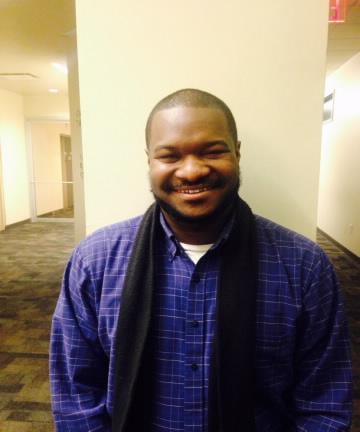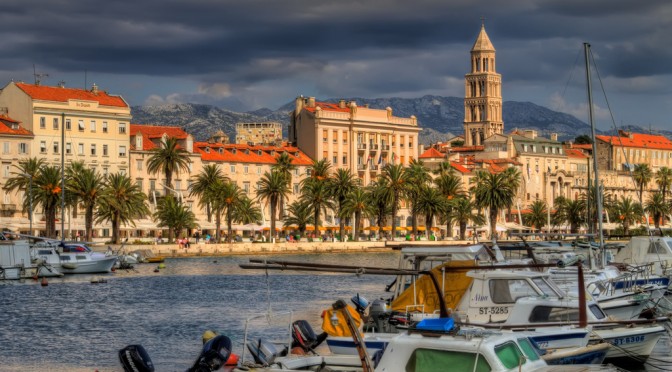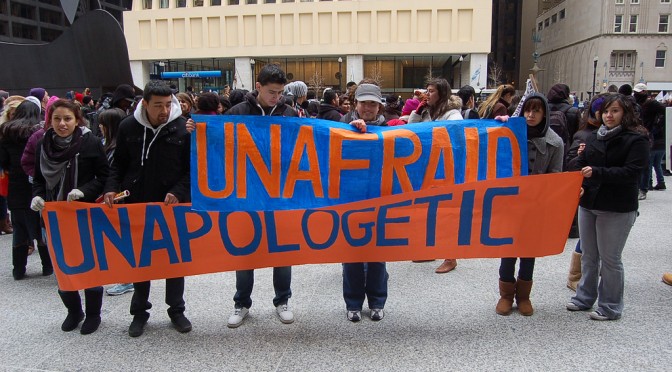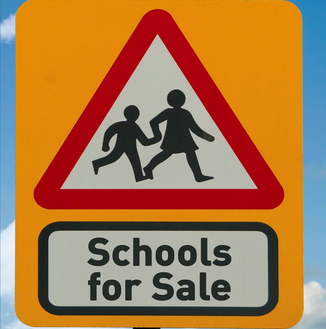
Jeyakumary Jeganathan, CWA Local 1180 Member, is a successful graduate of the Certificate in Public Administration and Policy 2014. Originally from Sri Lanka, she joined the Department of Environmental Protection in 2001. As a full time employee and Mother, she knew it may be difficult to balance course work alongside her responsibilities. However, she credits the education benefit provided by the local and the incredible support of her family, as driving forces behind her success.
Q. As you reflect on 2014, what did you achieve academically that has impacted your personal-professional life?
A. The Public Administration Program has overall given me more self-confidence when facing challenging problems and also enhanced my ability to work on them with a positive attitude. I was able to break out of my comfort zone and open up more opportunities to advance within my career.
Q. What has been the most revealing thing you have learned in your classes?
A. As an adult, returning to school was not an easy decision for me to make. I initially started by taking only one class, just to see if I was able to handle it. After taking that, I received a lot of encouragement from my teacher and the diverse students, which I never expected. Commuting from Staten Island to Queens, alongside balancing work and the program, I found I was able to manage my time to the fullest extent. Suddenly, one class had turned into four. Even though this may have been one of the most challenging steps in my life, I have no regrets as the class always welcomed me with open arms. Overall, through my classes I have discovered a new perspective of life.
Q. Which projects, or classes have directly influenced your perception about a specific public policy topic/ issue?
A. For my Research Seminar class, as a group we were assigned to write a paper regarding the Public Housing Policy of New York City. This project had given me a greater insight of the living conditions surrounding the City. We read about government controlled housing, rent- controlled apartments, and policies on homeless shelters. Our assignment was to address one problem and recommend a policy change that would alleviate the problem, rather than further damage it. This exercise allowed us to examine the true power of the government by considering the public’s voice within the policy-making process.
Q. What key experiences have contributed to your commitment to education?
A. Since I could not complete my education at a younger age, I saw this program as the best way to accomplish a long-lost dream. Being that education is needed in order to advance within my career, I always wondered, “If I could make it this far, how much further could I make it with a proper education”? By receiving good grades, managing classes, work and family, I realized that with my newfound knowledge, nothing can stop me.
Q. How have your classes enhanced your critical thinking skills and writing skills?
A. In each class, I was given comprehensive writing and presentation assignments. Each one aided me by enhancing my reading and writing skills. The writing assignments allowed me to think about writing papers from an entirely different perspective. I learned how to make connections within all of my research to come to one valid conclusion. Creating PowerPoint presentations helped me to solidify my research skills and improve my public speaking skills the most. By participating regularly and displaying my research in front of my peers, I became more comfortable speaking in front of a crowd, and gained confidence that was much needed.

Alphonse Ramsey, CWA Local 1180Member, is a new Urban Studies MA candidate. Following successful completion of the Murphy Institute’s Certificate in Public Administration and Policy in 2014, Alphonse responded to an 1180 email that highlighted the significance of educational advancement and the generous education benefit provided by the local. In addition to working full-time, Alphonse continues to be an urban leader and active participant by volunteering and organizing student-led Forum discussions. Read more to get a glimpse of how his Murphy experience has inspired him in and out of the classroom.
Q. As you reflect on 2014, what did you achieve academically that has impacted your personal-professional life?
A. 2014 was a great year for me academically because I completed the Graduate Certificate in Public Administration and Policy. I started the program in 2013 on a whim and I really enjoyed every minute of it. It’s been very interesting going back to school as an adult because a lot of the distractions of being an undergrad are gone. There are, of course, different challenges like balancing work, school, and family, but I feel like I have a better understanding of myself as a student. The issues we discussed in classes are all relevant and important. It’s hard not to come away from the experience, not only as a better student, but also as a better citizen.
Q. What has been the most revealing thing you have learned in your classes?
A. I think the most revealing thing that I learned in my classes is that the world we live in is the product of both failed and successful implementations of public policy and to a larger extent it’s based on an understanding of collective opinions and prejudices over time.
Q. Which projects, or classes have directly influenced your perception about a specific public policy topic/ issue?
A. The classes that come to mind are Social and Economic Policy with Professor Eisenberg and the Research Methods Seminar with Professor Battle. In Social and Economic Policy, I was taken aback by the layers of policy that have been constructed over time to deal with the poor. It’s astonishing to see how the issue has evolved over the years and how it has routinely failed to end poverty. However, it also forced me to question whether or not ending poverty is actually an attainable goal. Research Methods gave me a better understanding of the issues facing LGBT people of color, by learning how to use and analyze statistical data from the Social Justice Survey.
Q. What key experiences have contributed to your commitment to education?
A. I remember going to college as a two year old with my mom. So my commitment to education started at a very young age. There were days when she couldn’t find a baby-sitter and she would have no choice, but to take me to class with her. One of my rewards for behaving was to play computer games, or create a banner using the schools printing facility. Needless to say, from that point on I always associated learning and education with a positive environment. I also understood that education was one of the faster ways to achieve better opportunities and increase possibilities for success. It’s been one of the things that I feel has given me the confidence to go after what I truly want in life.
Q. How have your classes enhanced your critical thinking skills and writing skills?
A. Each class has required a good amount of writing, but I would say that Professor Smikle’s Policy Analysis class has enhanced my critical thinking and writing skills by forcing me to write clear, concise, and direct assignments that get to the point. He spoke a lot about memo writing and the importance of saying more with less and I think that goes a long way.








